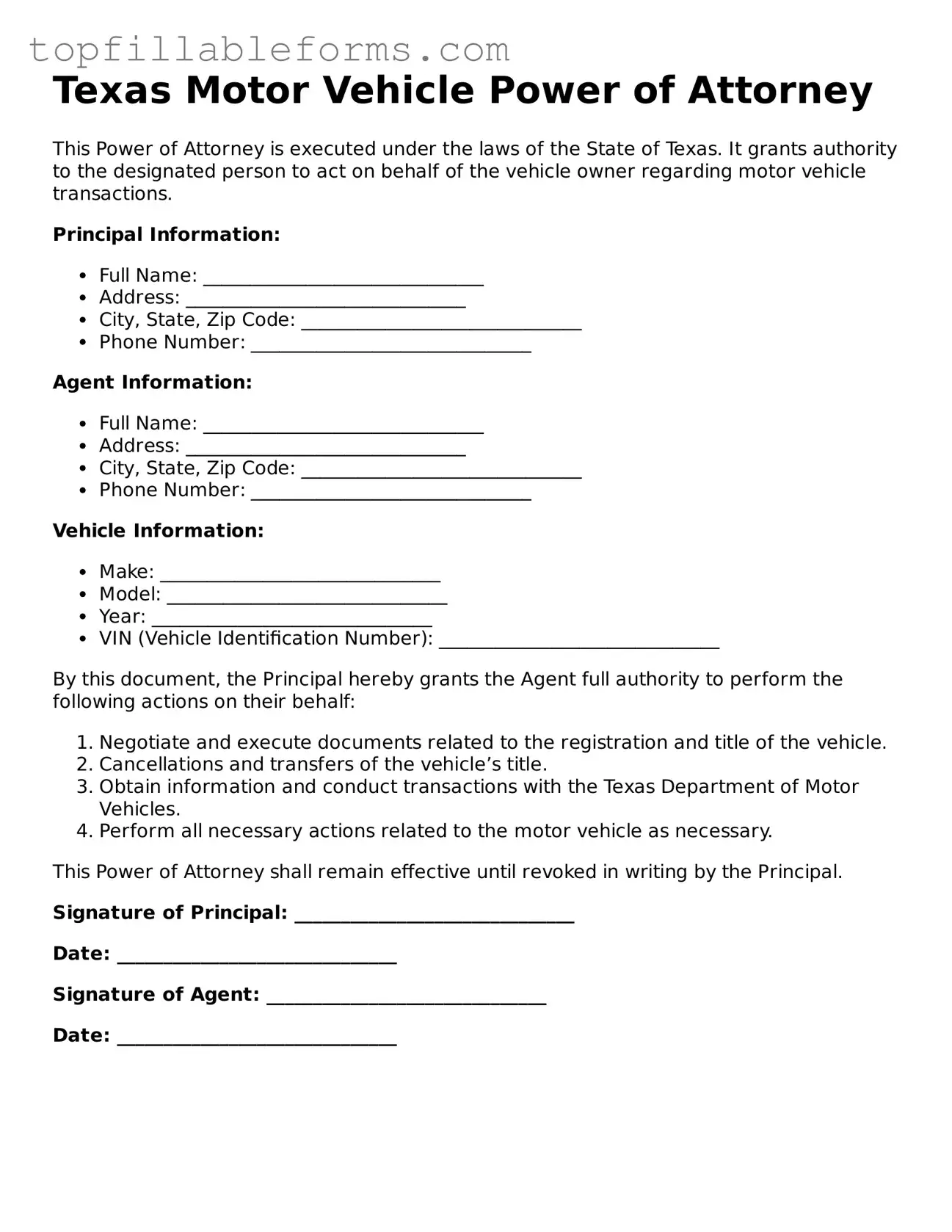Attorney-Verified Motor Vehicle Power of Attorney Template for Texas
The Texas Motor Vehicle Power of Attorney form is a legal document that allows an individual to designate another person to act on their behalf in matters related to motor vehicle transactions. This form is particularly useful for those who may be unable to handle these transactions personally due to various reasons, such as illness or absence. By granting this authority, the principal ensures that their interests regarding vehicle registration, title transfers, and other related tasks are managed effectively.
Open Motor Vehicle Power of Attorney Editor Here

Attorney-Verified Motor Vehicle Power of Attorney Template for Texas
Open Motor Vehicle Power of Attorney Editor Here
Finish the form now and be done
Finish your Motor Vehicle Power of Attorney online by editing, saving, and downloading fast.
Open Motor Vehicle Power of Attorney Editor Here
or
▼ PDF File
